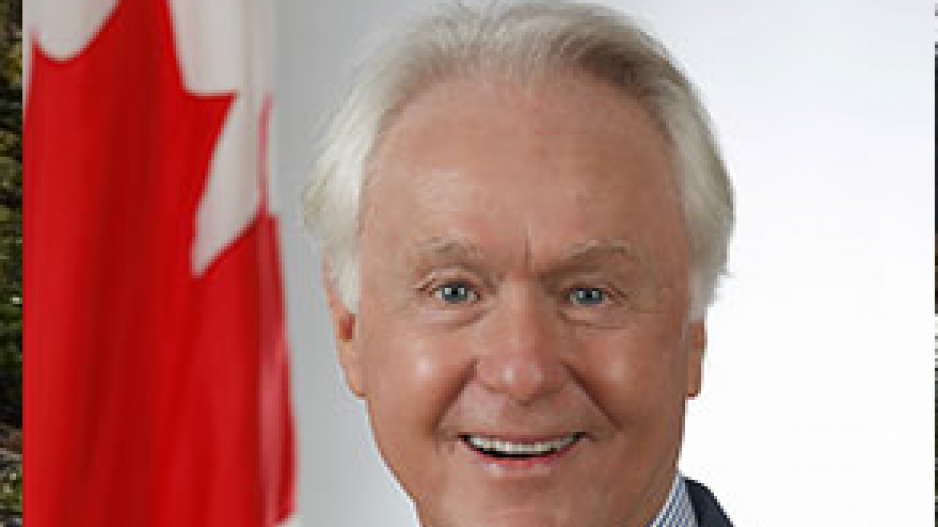An Alberta senator has put forward a bill to declare the Trans Mountain expansion project to be “for the general advantage of Canada” – a move that has already prompted pushback from a Manitoba senator who was absent when the bill got first reading.
Doug Black, a senator from Alberta, is sponsoring a bill which – in the unlikely event it ever passed by the House of Commons – would effectively expropriate provincial and municipal roads, bridges, and other infrastructure from provincial and municipal governments.
The bill was introduced for first reading last week and was moved for second reading Tuesday March 27.
Senator Murray Sinclair, who is chairman of the Truth and Reconciliation Commission, was absent when the bill was first introduced it and blasted the proposed bill on Twitter.
This was NOT a unanimous vote. There was no plan for a vote to be held and many senators including me, were away from the Chamber attending to other business. A surprise vote was called. I am more resolved than ever to fight this project in the Senate. https://t.co/RLEIdvMXCv
— Sen Murray Sinclair (@SenSincmurr) March 24, 2018
Prime Minister Justin Trudeau and his ministers have reiterated several times their resolve to see the $7.4 billion pipeline expansion project completed.
But they have, so far, not backed up their words with any concrete actions that might put a stop to municipal and provincial roadblocks and non-stop protests in Burnaby that have resulted in dozens of arrests and delays to work on the Westridge Marine Terminal, which is being expanded to allow for more oil tankers.
Black’s bill proposes an act that would bring all roads, bridges, power connections – pretty much everything within the pipeline corridor – under the direct authority and control of the federal government.
“The effect of that, of course, is to exclude the governments, in this case, of British Columbia and, in this case, the municipalities of Burnaby and Vancouver, from having any legislative authority,” Black said, when speaking to the bill in the Senate Tuesday.
Despite receiving regulatory approval by the National Energy Board and federal cabinet, completion of the expansion is expected to be delayed by about a year, thanks to court challenges, regulatory hurdles thrown up by the City of Burnaby and the B.C. government, and daily acts of civil disobedience, in which protestors continue to defy a court injunction granted to Kinder Morgan Canada (TSX:KML).
“Those injunctions are being violated on a daily basis,” Black said. “As of today, there have been 172 arrests of individuals who decided to take the law into their own hands.”
Two of those arrests have included Members of Parliament – Green Party Leader Elizabeth May and NDP MP Kennedy Stewart. Moreover, the City of Burnaby has stated it will not pay for the extra policing costs for RCMP presence at the protest sites.
Bills like the one Black is proposing are rarely passed by the House of Commons. Moreover, the section of Canadian law that Black’s bill would invoke has not been used for decades. In the past, it was used for projects like railways that were deemed to be in the national interest.
The act, as proposed, would mean provincial and municipal laws simply would not apply to the Trans Mountain pipeline, so Kinder Morgan would not need either municipal or provincial permits.
“The government of Canada would have exclusive authority in respect of the construction, operations and maintenance of that line,” Black told Business in Vancouver.
Black concedes what he is proposing is an extreme measure.
“We haven’t used this provision in Canada for the last 30 or 40 years because we have had very effective cooperative federalism for the last number of decades,” he said. “So if we’re all cooperating and getting along, then you don’t need this kind of remedy. But the remedy exists and it exists for – I would argue – this very purpose.”
Should the bill fail to get through the House of Commons, Black said the least the federal government should do is ask the Supreme Court of Canada for a clear declaration on the delineation powers in Canada, with respect to provincial and federal jurisdiction.
The B.C. government plans to ask BC Supreme Court to make a determination on its authority – or lack thereof – to place any restrictions on the movement of oil from Alberta.
If the B.C. government gets a ruling it doesn’t like, Black said it could appeal. Since it might eventually have to go to the Supreme of Canada anyway, Black said Ottawa should just get an answer from the Supreme Court of Canada now.
“The Government of Canada has the authority to do that,” Black said. “I’m saying let’s just cut to the chase. It’s going to end up at the Supreme Court of Canada so I’m calling on the Government of Canada to refer this matter now.”




